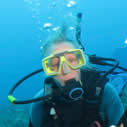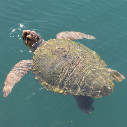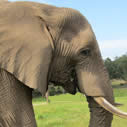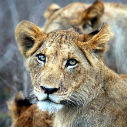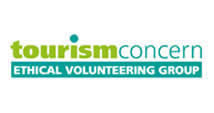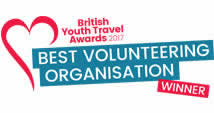Marine ConservationSouth Africa
Our Marine Conservation project in South Africa helps monitor the fauna and flora of Sodwana Bay.
You will receive marine ecology training and help the local team contribute to turtle, shark, potato bass and manta ray research at one of the world’s prime dive locations. This research is used to protect and preserve the local ecosystem.
Learn to dive or advance your skills whilst exploring some incredible dive sites. Divers of all abilities are welcome and training is provided on site. Live with a community of volunteers and experience life by the coast which features some of the Indian Ocean’s most glorious beaches.
Join the team to learn more about the ocean and assist global marine conservation.
Key Info
View More PhotosProject Information
Volunteer role: What will I be doing?
Sodwana Bay’s 50km reef is home to over 90 species of corals and sponges as well as over 1200 fish species.
The project’s primary objective is to monitor the fauna and flora of Sodwana Bay and the iSimangaliso Wetland Park, gathering biodiversity data and monitoring species distribution. Volunteers collect photos and record sightings of turtles (Green, Hawksbill and Loggerhead), rays, sharks and groupers as well as endemic, iconic and rarely seen species. This data is fed into global and regional databases which aim to identify the migratory patterns and population densities of fauna and flora.
You will complete a marine ecology course and a series of lectures which include fish, coral and invertebrate identification, data collection and survey techniques. These learnings will then be applied during the dives.
Each day is different and research activities may include:
- Reef surveys
- Data collection on megafauna populations and their changes, which may be influenced by shifting global weather patterns
- Population surveys on potato bass
- Turtle, shark, and whale monitoring
- Uploading photographs of individual sightings
- Uploading photographs to monitor the impact of plastic pollution and coral bleaching
The project is also part of PADI’s Project Aware which works with scuba divers across the globe to protect underwater environments.
“Volunteers enable us to collect photographic data of our target species – allowing us to contribute to databases which track protected species and migration. The aim of this is to protect endangered species of flora and fauna in the iSamangaliso park”
Emilia – Volunteer Coordinator
Dive courses
In order to assist with the conservation work you will need to have at least your Open Water certification. You will receive one dive course included in your placement fee:
- Beginners complete the PADI Open Water course
- Open Water divers complete the PADI Advanced Open Water course
- Advanced level divers can choose to complete one course from a range of PADI dive specialty courses e.g. Deep Diver, Nitrox, Underwater Naturalist, Peak Performance Buoyancy, or the Rescue Diver course
If you would like to undertake any additional courses, these can be arranged and paid for once at the project. It's also possible to do a Divemaster Conservation 12 week Internship.
Typical day
You will usually work 5 days per week between around 7am – 3pm, but times vary considerably depending on the weather. In general, mornings are spent diving, afternoons and evenings are for research activities, ecology lectures and relaxing.
There will generally be 1 research dive per day. It takes around 3 hours in total to launch, travel to the dive spot and return to shore – around 1 hour of this will be spent diving. There are 10 dives included every 2 weeks (extra dives can be paid for locally if you would like to dive more).
On your days off there are a variety of free time activities for you to get involved in.
Other volunteers
There are usually 5-8 volunteers at the Marine Conservation project, with up to 16 volunteers. There may also be up to 10 social care volunteers and expedition groups living in the same volunteer camp. Volunteers are predominantly 18-25 years old.
Duke of Edinburgh’s (DofE) Award
This placement has been approved by the DofE as meeting the requirements for the Residential section of the Gold Award.
Local support
You will be supported by a local volunteer coordinator with a keen interest in marine ecology. They will be often be diving with you and will lead the lecture series that runs alongside the volunteer programme.
Accommodation
The volunteer camp is near a small village in a rural area, 10 minutes’ drive from the beach.

The main house has an indoor lounge area with a TV and an outdoor relaxation area where volunteers can socialise. There are large gardens and a swimming pool on site for volunteers to relax in during their free time. There is WIFI at the camp.

Meals
Volunteers prepare their own meals with ingredients provided by the project. Here are typical examples of the food you may have:
- Breakfast – fruit, cereal, toast
- Lunch and dinner – sandwiches, salad, pasta, pizza, burgers, stews
There are vegetarians and vegans options available.
The tap water is safe to drink.
Getting there
You will need to fly into Johannesburg Airport (JNB) and then take a connecting flight to Richards Bay Airport (RCB).
You will be met on arrival at Richards Bay Airport and driven to the project, which takes about 3 hours.
Location and free time
Sodwana Bay is situated just outside the iSimangaliso Wetland Park, South Africa’s first UNESCO World Heritage Site. The iSimangaliso Wetland Park forms a continuous protected area stretching 150km from the Mozambique border southwards to St. Lucia and three nautical miles out to sea.
The park supports a diverse array of marine habitats including some of the world’s southernmost coral reefs, Africa’s largest estuary, mangrove swamps, seagrass meadows, intertidal reefs and deep water canyons. This makes it an ecosystem that it is extremely important to monitor and protect.
Sodwana Town itself is a small holiday village mostly visited by divers, deep sea anglers and beach lovers. The coastal town is only small, but provides access to essential amenities as well as some of the Indian Ocean’s most glorious beaches. There are lots of nice cafes with a laid back vibe and a couple of bars and restaurants to enjoy.

Volunteers have 2 days off each week, usually at the weekend. As the project is located in a rural area, this is generally spent at the beach or accommodation relaxing, socialising with volunteers, having a BBQ, swimming in the pool or reading.
If you do travel further afield you can explore some of South Africa’s most beautiful beaches. You may also wish to visit the variety of tourist attractions in the area, these include bird sanctuaries, game and nature reserves, whale watching, bungee jumping, surfing, sky diving and much more.
Dive conditions
Water temperature: 20-29˚C
Visibility: 10-30m
Depth range: 10-40m
Common marine life you will encounter: the reef is home to 80% of South Africa’s fish species with big fish including the potato bass, crayfish and varieties of tropical reef fish. Humpback whales, whale sharks, ragged-tooth sharks and black marlin may also migrate through the waters seasonally.
Climate
Sodwana Bay has a subtropical climate with hot, wet summers between December and March and mild, drier winters between May and September. During the summer months, temperatures are typically between 25-32˚C. During the winter, temperatures are generally around 18˚C but can fall to lows of around 12 ˚C.
Travelling in South Africa before or after your placement
South Africa is situated at the southern tip of Africa and ranges from desert to sub-tropical. With dramatic landscapes, amazing wildlife and a rich and diverse culture and interesting history, South Africa has something for everyone. Popular activities in South Africa that you might like to combine with your project are:
- Spotting the Big 5 (lion, leopard, elephant, rhino and buffalo) on safari
- Travelling the Garden Route
- Visiting Cape Town and sampling some of the local wines
For more information on South Africa and some of the things we loved when we visited there please see our South Africa country page. This also features all our other South Africa volunteering projects as you might like to consider combining this project with one of the others we offer to make a trip of a lifetime!
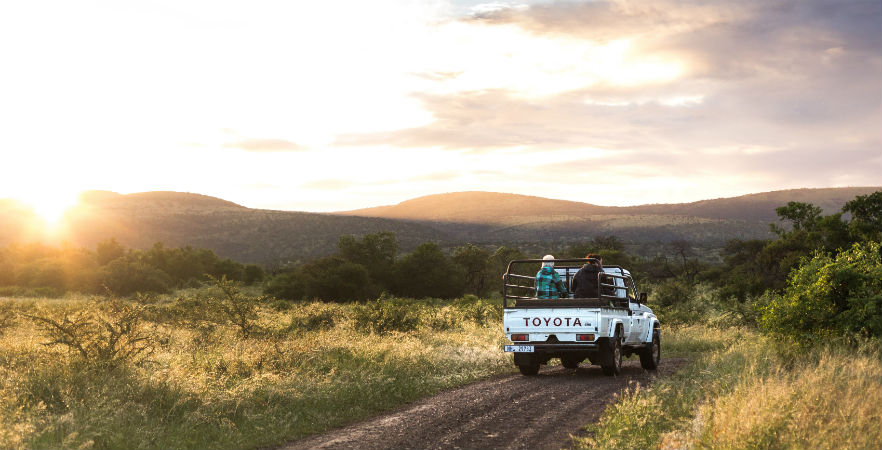
Dates
2023: 2 Jan, 16 Jan, 6 Feb, 20 Feb, 6 Mar, 20 Mar, 3 Apr, 17 Apr, 1 May, 15 May, 5 Jun, 19 Jun, 3 Jul, 17 Jul, 7 Aug, 21 Aug, 4 Sep, 18 Sep, 2 Oct, 16 Oct, 6 Nov, 20 Nov, 4 Dec, 18 Dec
What's Included
Included
- Dedicated Pod Volunteer Specialist to support you
- Airport pick up (Richard’s Bay) and return transfers
- Accommodation - a shared room
- Food - all main meals
- Induction
- PADI Open Water qualification (or Advanced qualification if already Open Water certified)
- Marine ecology training
- National Park fees, entrance fees and community levies
- Return transport to beach for research dives
- All research dives
- Use of training manuals, ID guides, text books and survey equipment
- Support from the local team (including certified PADI Dive Instructor)
- Support from the Pod Volunteer UK office by phone and email
- 24/7 emergency back up
- Donation to Pod Environmental Fund supporting solar lights in Ghana
- Volunteering certificate and reference (on request)
Not included
- Flights
- Travel insurance
- Vaccinations and medication
- Living costs - snacks, drinks, laundry
- Any tourist trips / activities you choose to do in your free time
Price table
| 2 weeks | £1495 | GB Pounds |
| Each additional 2 weeks | £895 | GB Pounds |
Discounts
- £50 discount if you have previously volunteered with Pod Volunteer
Where the money goes - financial transparency
Your fee covers the overseas costs of volunteering and the costs of running our organisation in the UK, on a non-profit basis. For more details and a breakdown of our costs please click here.
Book with confidence - financial protection
All monies paid to us are financially protected through The Association of Bonded Travel Organisers Trust Limited (ABTOT).
Fees in currencies other than GBP are indicative only and volunteers are invoiced in GBP. For current exchange rates please see www.xe.com
Read volunteer reviews from the Marine Conservation project
Alexandra
"This project was an amazing experience that I will never forget. The dive sites were amazing and everyone there was always supportive, nice and easy to talk to. On our dives we looked for Potato bass, Turtles and Rays to ID and put into a database. Although trying to find the specific name of the turtle or potato bass could take a while it was always interesting to find out who we saw and how long it had been since their last sighting.
I also really enjoyed the lectures that Emilia and Arno gave because we learnt so much about Sodwana Bay, coral reefs and other marine environments; if you had any questions they would always know the answer!
What did you find most rewarding?
Learning so much more about the fish and invertebrates found on coral reefs - especially ones you may not notice until they are pointed out to you.
I would recommend staying more than 2 weeks if you are a beginner diver because if you need to get your open water it doesn’t leave much time to do much of the conservation work."
Santiago
“Definitely worth it! It is an amazing experience with people from all over the world with one main thing in common. If I regret something is being there for only two weeks and not more. Everything was amazing! Amazing people and places.
Lea
"Volunteering at the South Africa marine conservation project was a brilliant experience that will not be soon forgotten. Aside from the breathtaking diving, the volunteer coordinators were absolutely brilliant. The amount of passion they have for marine life is truly inspiring and passion invoking. On top of this, you get to connect with a variety of people who share the same passions as yourself in a stunning setting."
Liz
“The Marine Conservation project in South Africa was one of the most exciting, fun and rewarding things I've done. After completing the diving course, volunteers go on a dive a day to one of the many and varied beautiful reefs you can find in Sodwana Bay.
The amount of marine life is amazing and your main project is to spot and identify the critically endangered Turtles and Potato Bass, and if you're really lucky, the odd Manta Ray might glide past. The team is so friendly and you will quickly find yourself part of the diving family and will learn a lot about marine conservation through the daily lectures and documentaries.
If you're willing to get your hands dirty, live closely with likeminded people in quite basic but close knit accommodation and fall in love with the underwater world then this is for you!"

24/7 support
Alex and the Pod UK team are here to help you throughout your trip
Reserve your place and start your volunteering adventure to South Africa!
BOOK NOWSIMILAR PROJECTS
We have other projects you may be interested in
COMBINE PROJECTS
You can also combine projects to make the volunteering trip of a lifetime!

